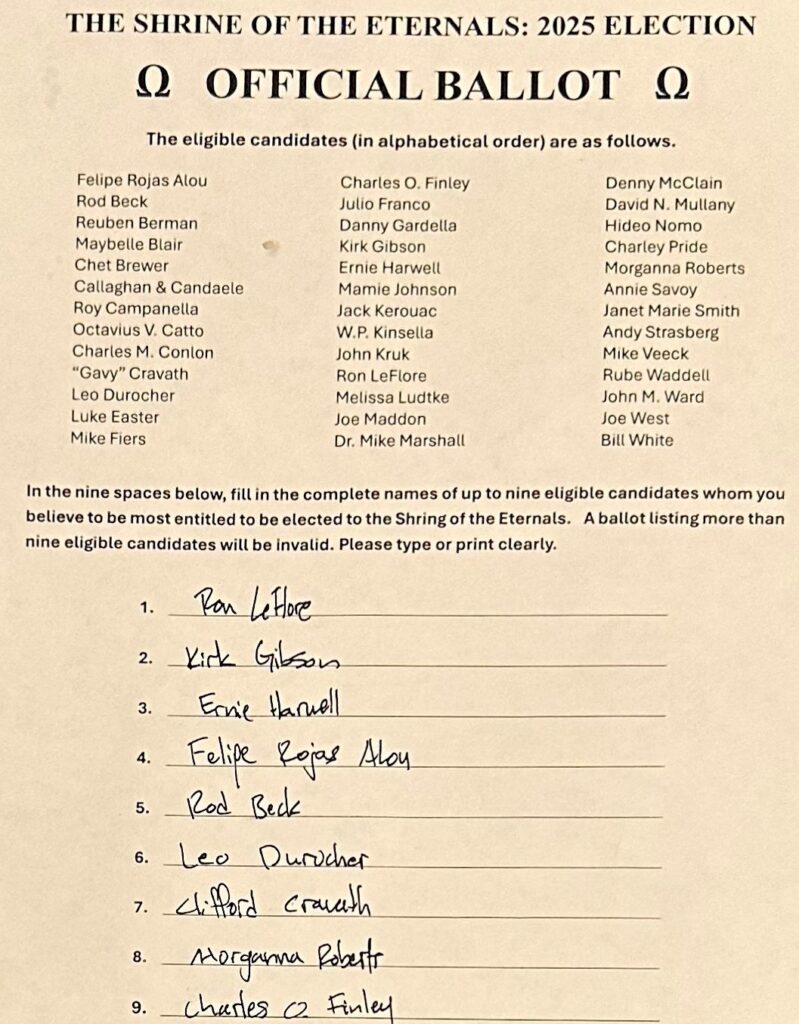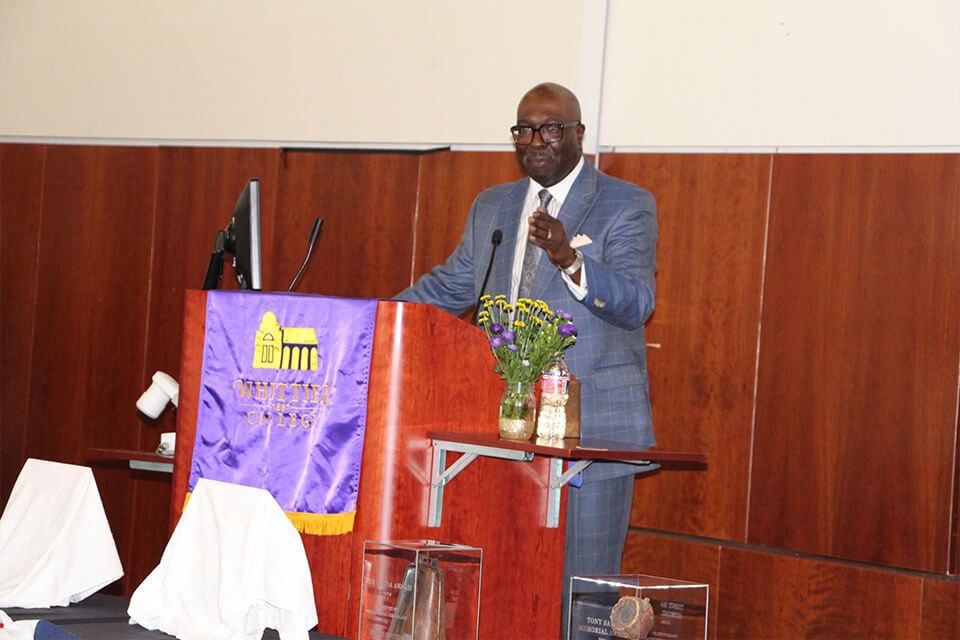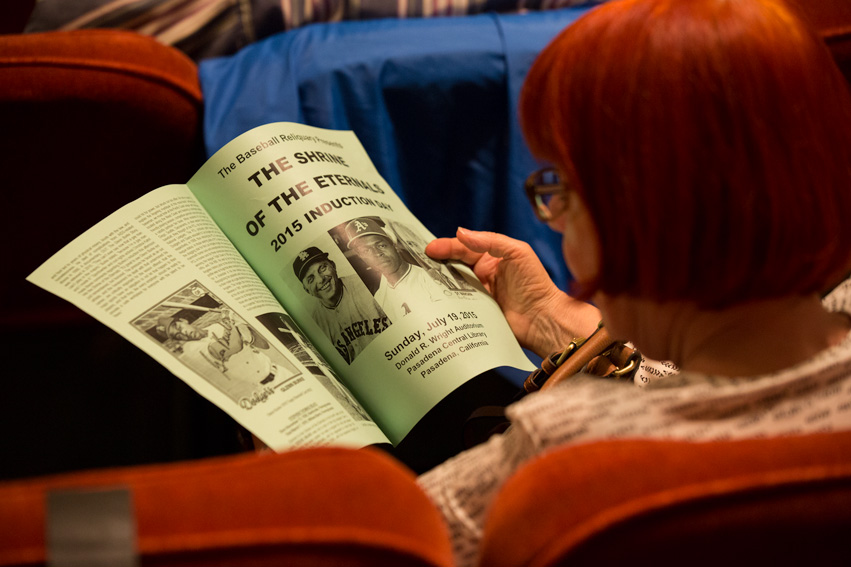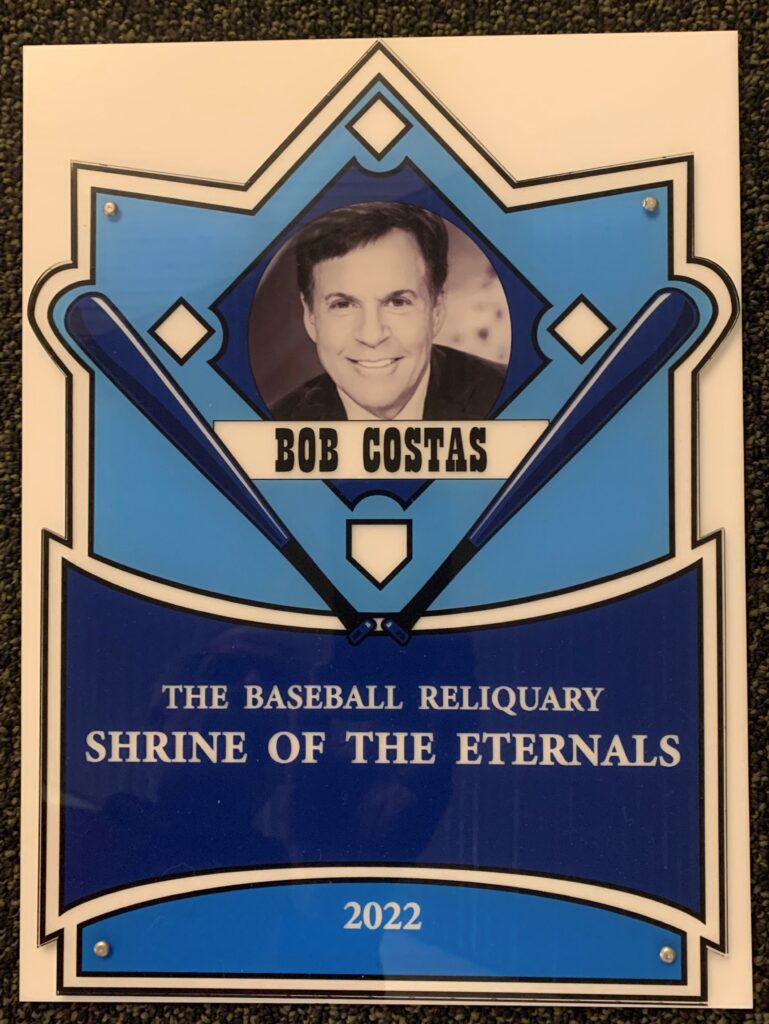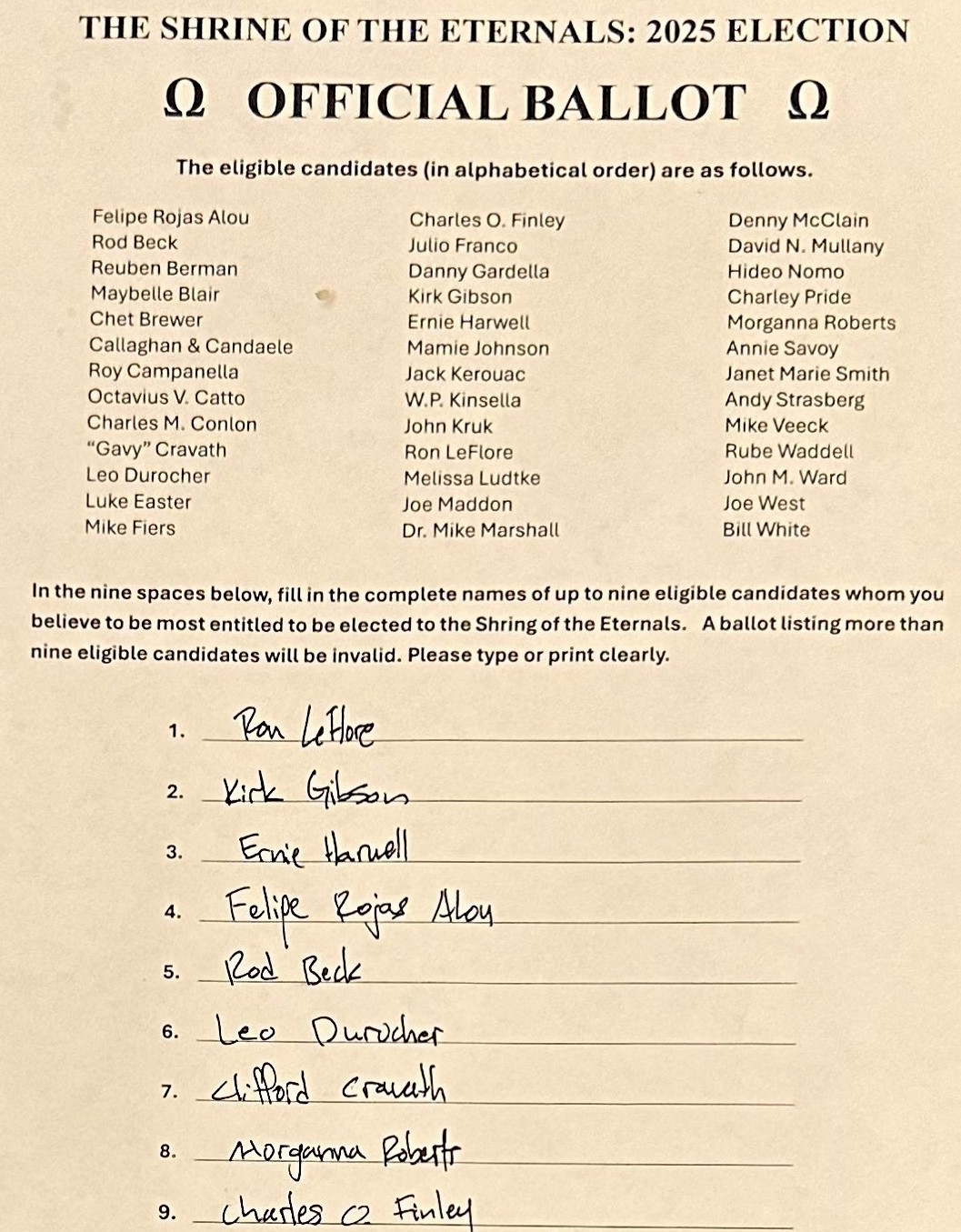
The Baseball Reliquary is pleased to announce members of the Class of 2025 elected to the Shrine of the Eternals, the organization’s alternative to the Hall of Fame in Cooperstown. For the second time in the Reliquary’s history, a tie resulted between two of the candidates. The four honorees this year are Felipe Alou, Kirk Gibson, Ron LeFlore, and W. P. Kinsella. Joining the quartet of this year’s inductees will be Sean Doolittle, who was elected in 2024 but whose celebration was postponed until this year.
The Shrine of the Eternals induction ceremony will be held on Sunday, November 16, at 2:00 p.m. in the Villalobos Conference Center on the Whittier College Campus, Whittier, California. Members of the Reliquary and baseball fans are invited to attend the ceremony, which will be co-sponsored by the Whittier College Institute for Baseball Studies where the Reliquary’s memorabilia, art, and records are archived.
***
After leading the Dominican Republic to the Gold Medal against the USA in the 1955 Pan American Games, Felipe Alou signed with the Giants for $200, which paid off his family’s debt for food. When he arrived stateside the following year, he spoke no English and had no exposure to racism, which he immediately experienced when the Evangeline League threatened to expel his Lake Charles Louisiana team because of his skin color. Consequently, he was shifted to the Cocoa in the Florida State League.
Becoming the second player from the Dominican Republic to make it to the major leagues, Alou made his debut with the San Francisco Giants in 1958. Still, he continued to play winter ball in his home country, winning back-to-back batting titles and prompting a fine from Commissioner Frick for participating in “unauthorized” winter league games involving Cuban players. Responding to Frick and his manager’s edict against the use of Spanish in the clubhouse, Alou challenged the Commissioner to establish a position for a Latino representative in the Sport magazine story “Latin-American Ballplayers Need a Bill of Rights.” Two results from his comments: Alou succeeded with his challenge to the Commissioner, and shortly after his comments appeared in the article, he was traded to Milwaukee.
A lifetime .286 hitter with 206 home runs in 17 seasons with six teams, Alou also excelled as a manager, winning more than a thousand games at the helm of the Expos (where he managed his son Moises) and the Giants.
Kirk Gibson was one of the roughest, toughest, and gruffest “bad asses” ever to play in MLB. An All-American football player at Michigan State, he was drafted in the first round in 1978 and signed a contract with the Detroit Tigers that allowed him to return to MSU to compete in football during his senior season.
Playing baseball with the intense abandon of a football player, he suffered injuries that slowed his progress to become the Tigers regular right fielder. In 1984 he set a Tigers record with 17 game-winning hits and led the team past the Padres in the World Series, sealing the championship with a three-run blast in the deciding game. Then signing with the Dodgers in 1988, he led them to the postseason, then homered in victories against the Mets that propelled them to the World Series. In Game I against Oakland, Gibson iced his knees while the A’s rode a 4-3 lead into the bottom of the 9th. Shutdown closer Dennis Eckersley quickly notched two outs, but after an unlikely walk, Gibson hobbled to the plate before cracking the 3-2 pitch into the right field seats and limping around the bases. The A’s never recovered and lost in five games.
Gibson played seven more years and retired as a Tiger in 1995, then managed the Diamondbacks from 2010-2014. In 2015, he was diagnosed with Parkinson’s and established the Kirk Gibson Foundation for Parkinson’s, a disease that affects more than one million persons in the US. In retirement from the field, Gibson also has provided color commentary on the Tigers TV broadcasts.
It is hard to think of a fiction writer whose body of work thoroughly engages with the “mythic” elements of baseball more than that of Canadian W.P. Kinsella. His novel Shoeless Joe has captured enduring attention through its film adaptation, Field of Dreams. In the book he originates the phrase “If you build it, he will come,” a slogan that has blended into cultural use in conversational ways. (Usually, the line is misquoted as “If you build it, they will come.”) For most authors, that oblique reference would be fame enough.
Kinsella’s complicated literary career began late. After homeschooling and doing a variety of jobs, he belatedly went to college and eventually earned an M.A. from the prestigious University of Iowa Writer’s Workshop. In general, his literary style is identified as “magic realism,” an orientation in which the real and the fantastic live comfortably and seamlessly with each other. For example, in Field of Dreams, deceased historic ballplayers emerge on an Iowa farm to play once again in “reality,” then meld into the high corn beyond the outfield. Like Shoeless Joe, Kinsella’s novel The Iowa Baseball Confederacy and his collection of stories The Thrill of the Grass also display this orientation toward “magical realism,” a perspective that best describes the worldview of many devout baseball fans.
The story of Ron LeFlore is incredible, improbable, and imbedded in Detroit.
As a 21-year-old in1970, Ron LeFlore and two accomplices robbed a Detroit bar. Following his arrest and conviction, he was sentenced to 5 to 15 years in a Michigan prison. Although he hadn’t played organized baseball growing up, he joined the prison baseball team and played his first game behind bars in 1971. Alerted to LeFlore’s speed, arm, and power by the prison’s athletic director, Detroit Tigers scouts arranged for LeFlore to enjoy a one-day furlough and workout. Three years later, he became the starting center fielder for the Tigers.
Following mediocre rookie and sophomore seasons with the Tigers, LeFlore had a breakout season in 1976, starting the year with an incredible 30-game hitting streak and earning a starting spot on the American League All-Star team alongside teammates (and Shrine of the Eternals inductees) Rusty Staub and Mark “The Bird” Fidrych. Soon thereafter, a biography about LeFlore became a hit, One in a Million, and the book was followed by a made-for-TV movie starring LeVar Burton.
LeFlore played more than five seasons with the Tigers before being traded to Montreal where he starred for the Expos in 1980 when he racked up an incredible 97 stolen bases, second in the majors only to Oakland’s Rickey Henderson. After two seasons with the Chicago White Sox, his unlikely major league career came to an end in 1982, but his implausible and inspirational story still resonates with fans decades later.
Called the “conscience of baseball” by Sports Illustrated, Sean Doolittle has spoken out for the rights of workers, women, immigrants, and Washington, DC statehood, and he has combatted the forces of racism and the plague of gun violence. In other ways he has also been a strong advocate for social justice. Once he hosted a Thanksgiving dinner for 17 Syrian refugee families, and on other occasions he offered assistance to the LGBTQ community by raising money, expressing support, and educating teammates. At the Washington Nationals’ Pride Day in 2019, Doolittle wore a trans flag on his right baseball shoe, a rainbow flag on his left shoe, and a Nationals-branded rainbow shirt under his uniform.
In 11 MLB seasons marred by frequent injuries, Doolittle performed as a two-time All-Star closer for the Oakland A’s and Washington Nationals, whom he helped lead to the 2019 World Series Championship. Then he boycotted the champions’ White House celebratory meeting with Trump. A few years earlier after Trump had tried to dismiss his vulgar “grab their pussy” comment as just “locker room talk,” Doolittle retorted: “As an athlete, I’ve been in locker rooms my entire adult life and, uh, that’s not locker room talk.” The son of two military veterans, Doolittle has also worked with Swords to Ploughshares and Operation Finally Home to help veterans find jobs and adequate housing. Widely recognized by teammates for his love of literature, Doolittle regularly visited independent bookstores during road trips, and he often participated in a reading program for the children of soldiers.
The Baseball Reliquary is a Southern California-based organization dedicated to fostering an appreciation of American culture through the prism of baseball, especially the shapers of its history. The Shrine of the Eternals differs philosophically from enshrinement in Cooperstown in two significant ways: the criteria for election focus on a person’s game-changing contributions that supersede statistical measures; and voting on candidates is open to public membership, not restricted to sportswriters and committees.
At the induction ceremony for the Shrine of the Eternals, the Baseball Reliquary also presents two other awards, the Hilda Chester Award, in recognition of distinguished service to the game by a baseball fan, and the Tony Salin Memorial Award, in recognition of an individual’s commitment to the preservation of baseball history.
For additional information about the Baseball Reliquary and its partnership with the Institute for Baseball Studies at Whittier College, please contact the Reliquary’s Director Joe Price at jprice@whittier.edu.

